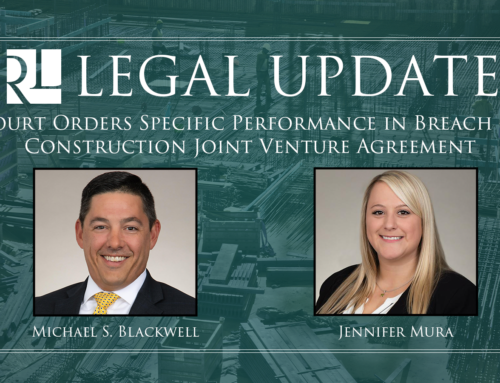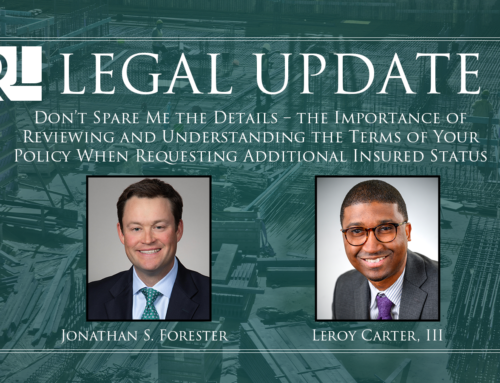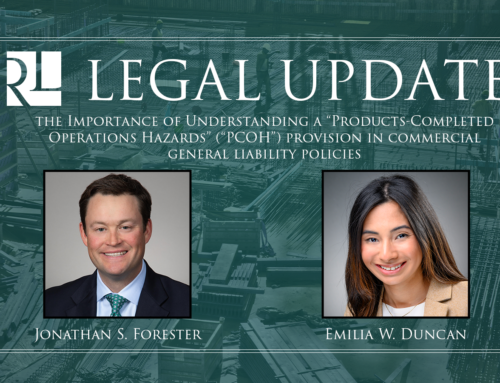In a recent U.S. Fifth Circuit case applying Texas law, the court cited the economic-loss rule to bar recovery for damage to a steam turbine generator caused by a faulty software upgrade in Golden Spread Electric Cooperative, Inc. v. Emerson Process Management Power & Water Solutions, Inc., 954 F.3d 804 (5th Cir. 2020). Ruling on an unsettled question of law in Texas, the Fifth Circuit was required to make an “Erie guess” as to whether the Texas Supreme Court would apply the economic-loss rule to bar tort recovery for a faulty replacement part that damaged the original product.
The plaintiff in the suit, Golden Spread Electric Cooperative (GSEC), sought recovery of over $8 million in damages from Emerson for damage to one of its existing turbines for which Emerson had engineered and installed a new control system. During initial testing of the new control unit, a software error failed to maintain the flow of lubricant to the turbine, resulting in overheating and damage to the turbine. GSEC made a warranty claim with Emerson under their contract, and Emerson modified the software. GSEC then sought $8 million in damages under several theories, including negligence and product liability. The U.S. District Court for the Northern District of Texas dismissed these tort claims, reasoning that they were barred by the economic-loss rule per Texas law.
The Fifth Circuit began its analysis by observing that “[u]nder Texas law, the economic loss rule generally prevents recovery in tort for purely economic damage unaccompanied by injury to persons or property.” The principal justifications for this rule are that economic harm is not self-limiting in the way that physical damage typically is, and economic damages can proliferate wildly, which leads to indeterminate liability and incentivizes the avoidance of economic activity. Furthermore, economic harm is better addressed by contract because the parties to a contract have the opportunity to assess risks ahead of time and contract accordingly. Under Texas law, the application of the economic-loss rule requires an analysis of these rationales to the unique facts of a particular case.
Damage to a product itself is generally not recoverable in tort under Texas product-liability law because damage to the product itself is more suitable for a contract claim. When a product is purchased as a complete package, damage caused by one component part to another component part is considered damage to the product itself. Accordingly, the purchaser is limited to recovery pursuant to contract.
The Fifth Circuit upheld the District Court’s decision. The court reasoned that although the Texas Supreme Court has not ruled directly on the question of whether damage to a product caused by a defective replacement part is damage to “other property,” an analysis of existing Texas appellate decisions and federal district court decisions applying Texas law indicates that the software provided by Emerson would be considered a component part of the turbine, and therefore the economic-loss rule applies. Analyzing the economic-loss rule’s application under Texas law, Emerson’s replacement component—the control system, including the software—was meant to result in an upgraded, more efficient turbine. While Emerson did not design or supply the turbine originally, which weighed against the application of the economic-loss rule, Emerson did provide “detailed project engineering, control strategy implementation, system testing, system startup and ongoing support.”
After reviewing the facts, the Fifth Circuit concluded this was not a “simple purchase of a physical part” but a “means to achieve an upgraded version of a complex machine.” Moreover, the software flaw was “more akin to a failure to meet contractual expectations than a dangerous defect,” and the damage to the turbine as a result of defective software was foreseeable to GSEC and Emerson. Thus, the Fifth Circuit determined that the Texas Supreme Court would apply the economic-loss rule in this circumstance and affirmed the district court’s dismissal of GSEC’s tort claims against Emerson.



